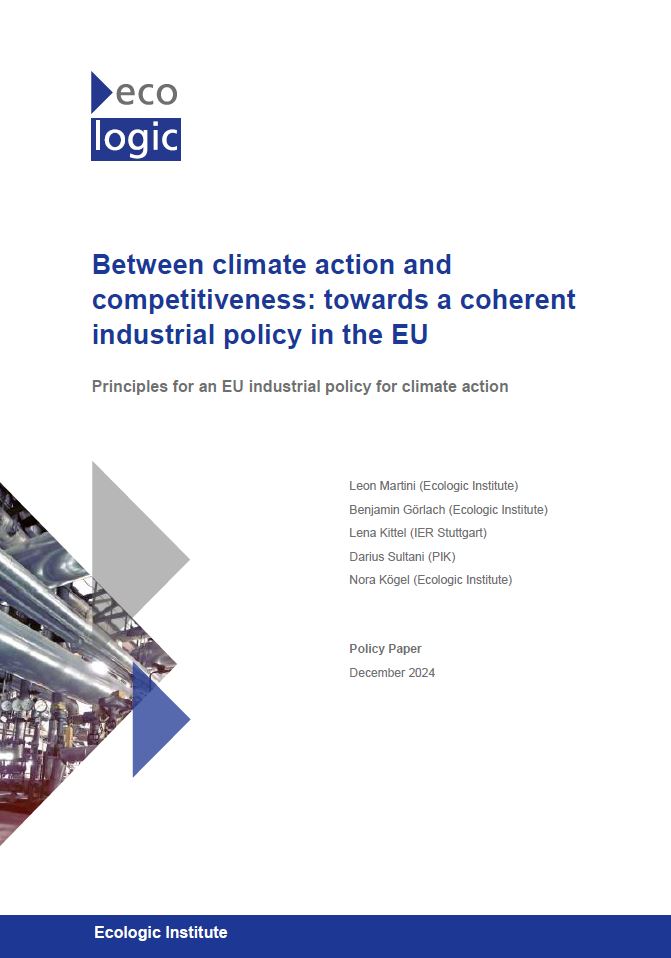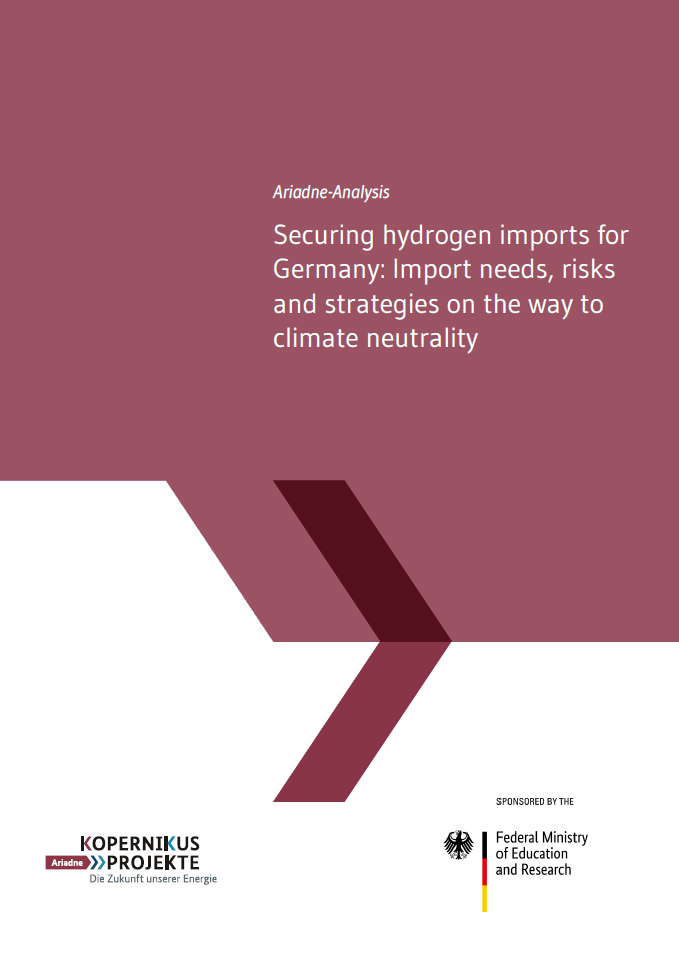Industriewende: Wettbewerbseffekte und Carbon Leakage
Neue Politikmaßnahmen im Zuge des Europäischen Green Deal – Ariadne-Kurzdossier
- Publication
- Citation
Fahl, Ulrich et. al. 2021: Industriewende: Wettbewerbseffekte und Carbon Leakage. Neue Politikmaßnahmen im Zuge des Europäischen Green Deal. Ein Ariadne-Kurzdossier.
With the Green Deal, the European Union aims to reduce its greenhouse gas (GHG) emissions by at least 55 percent by 2030 compared to levels in 1990. Among other things, this goal is to be achieved through a stronger role for carbon-pricing. For industry, however, this plan carries the risk of "carbon leakage": energy-intensive industries such as steel or chemical production could move away – increasing emissions elsewhere. Other industries could also be indirectly affected.
However, these risks, which are already having an impact in the short term as a result of international competition, are also offset by long-term opportunities: A stringent and credible climate policy stimulates innovation and promotes investment in CO2-efficient technologies. In a global economy that is increasingly geared toward the long-term goal of climate neutrality, this means a head start in the race for sustainable technologies, and at the same time creates inspiration for laggards in international climate protection. However, this can only be achieved if the industrial sectors are able to compete in the short term.
There is consensus at both European and German level that a very ambitious climate policy must not lead to the weakening of domestic industry or to creeping deindustrialization. At the same time, German and European industry will only be able to retain its strength if it rises to the challenge of the transformation to climate neutrality. So what options and measures are available to reduce risks for industry while making the best possible use of opportunities? With border adjustment in the narrower sense (i.e., a border tax or an expansion of the EU ETS to include imports) and a consumption levy on domestically produced and imported goods, two types of instruments are at the center of the current political discussion on protection against carbon leakage. This policy brief analyzes these types of measures and embeds them in two basic strategies that can be pursued with regard to carbon leakage. In doing so, this Ariadne policy brief focuses on the following:
- It provides an overview of the existing empirical literature on carbon leakage.
- It details the challenges that exist for the continuation of existing mechanisms and how these are to be located on the time axis.
- It addresses the tension between short-term interests in the carbon leakage debate (extensive absence of pollution and thus pressure for change) versus medium- to long-term interests (promoting transformative investments so that industrial production is compatible with climate neutrality).
- It offers a legal classification of both the basic alternatives, but more importantly, the broader legal framework, pointing out pitfalls that have received little attention to date.
- It compares the various options along essential criteria, bringing to the fore results of different studies.
- It addresses the question of which basic policy strategies can be pursued, taking into account in particular (a) incentives for international cooperation and (b) the supporting role of innovation and technology promotion.





